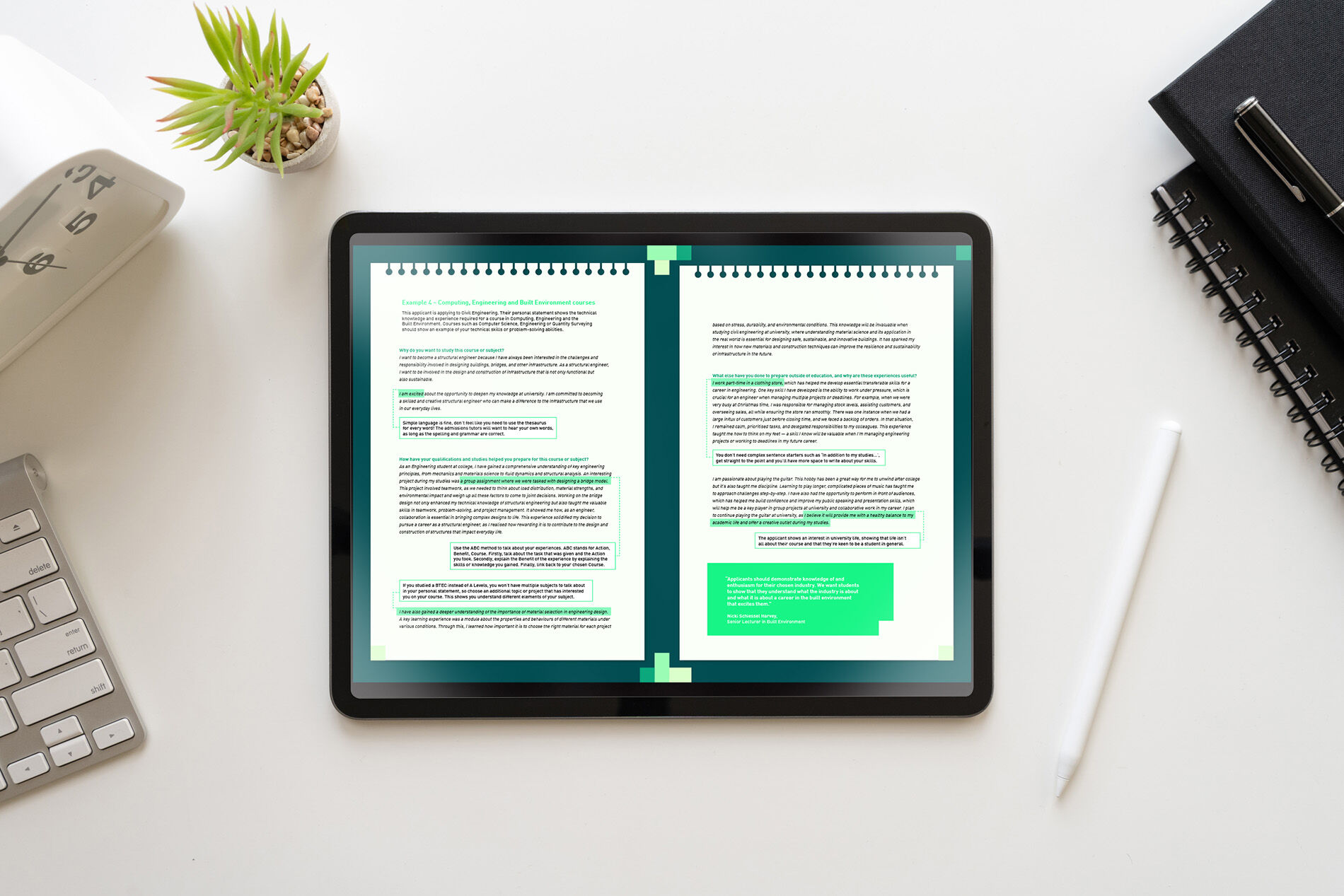We’re here to answer your top personal statement questions so you can stop wondering and start writing!
1. When should I start my personal statement?
Each year, the UCAS deadline falls at the end of January. It’s a good idea to get started before Christmas so you can enjoy some time off and celebrate with your family without thinking about your personal statement.
Your school or college may even ask you to get your personal statement done early so they can check it and get it out of the way before January exams/mock exams begin.
⏱ Early planning means less pressure. Start jotting down ideas in autumn and build your responses over time.
2. How long should my personal statement be?
The personal statement is made up of three questions you're required to answer:
1. Why do you want to study this course or subject?
2. How have your qualifications and studies helped you prepare for this course or subject?
3. What else have you done to prepare outside of education, and why are these experiences useful?
Each response will have a minimum character count of 350 characters including spaces. You have a 4000-character count overall, including spaces. You don't have to use the same number of characters for each question, as long as you write a minimum of 350 characters. You can write more for one question than you do for the others.
3. What should I include in a personal statement apart from my studies?
- Hobbies and interests: Make a list of your hobbies, interests and social activities. Then think about how they demonstrate your personality, skills and abilities. Try to link them to the skills and experience required for your course(s). Make sure you include interests you have at school like extra-curricular activities. You’ll be surprised how relevant it all is.
- Experience: Get some experience in the field you want to go into, if you haven’t got direct experience than relate how your part-time work or volunteering have increased your passion for the course. Make sure everything you write about is relevant to the course.
- Achievements and strengths: Concentrate on your strengths and what you’re good at. Do you run a successful blog and want to show off your skills for a marketing degree? Whatever it is, make sure you show off your achievements.
🎯 Always link your experiences to the course. That’s what will make your statement feel relevant and impactful.
Download your free personal statement guide
Be inspired by real personal statement examples from our students.
4. How do I structure my answers to each question?
A good way to structure your paragraphs is to use the ‘ABC’ method. When writing about each experience, use the ABC (action, benefit and course) structure. What is the activity, and what skills and qualities have come from it? And how does it relate to the course? Use this in each for each thing you talk about and before you know it, you’ll have a well-structured personal statement.
📌 Don’t repeat information across answers – admissions tutors will read all three answers together.
✅ Final checklist for a great personal statement
-
Start early and aim for a draft before the Christmas break.
-
Answer all three questions with at least 350 characters each.
-
Use real examples from your life, studies and interests.
-
Use the ABC method to structure each paragraph clearly.
-
Proofread and ask a teacher, tutor or friend to review your answers.
-
Make it personal and relevant to the course you're applying for.






